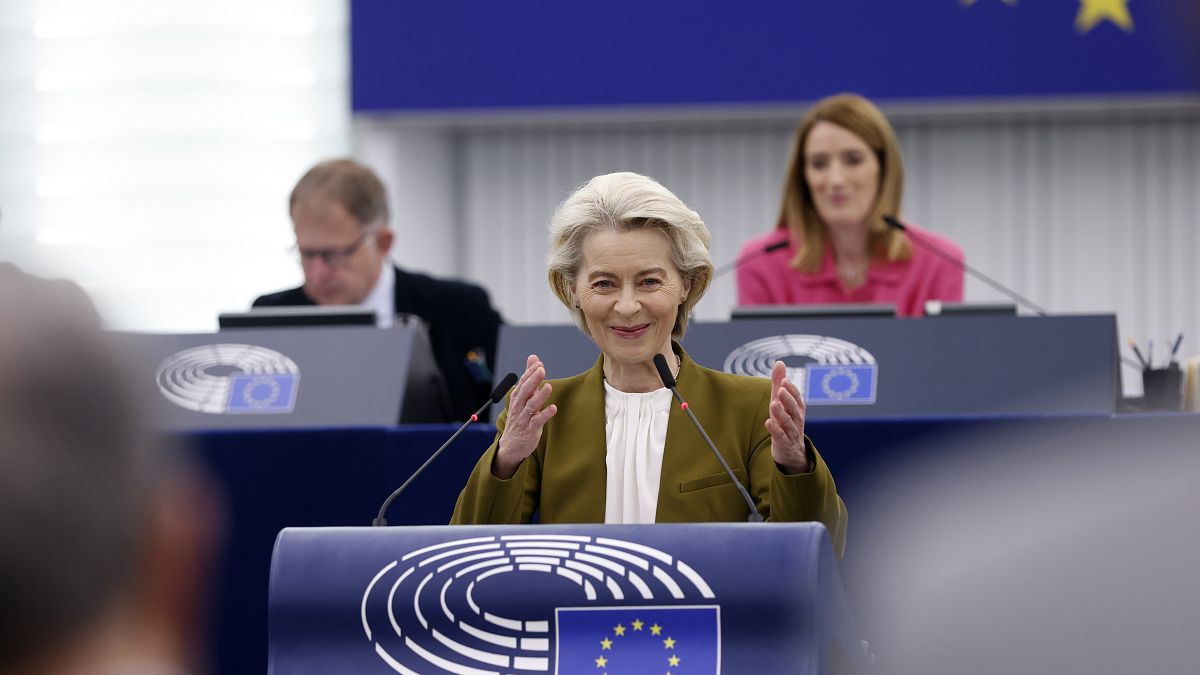Twenty years ago, the European Union witnessed its largest enlargement round ever on May 1, 2004, with ten new states joining the bloc, seven of which were formerly beyond the Iron Curtain. This event was dubbed the “Big Bang” and celebrated with the lighting up of European institutions in Brussels, Strasbourg, and Luxembourg. EU Council President Charles Michel emphasized the importance of enlargement for the future of the EU to prevent the risk of a new Iron Curtain. However, the likelihood of countries like Serbia, Georgia, or Ukraine joining the EU in the near future remains uncertain amid a lack of discussion on enlargement in the ongoing European Parliament election campaign.
Speculation has arisen about the formation of a new political alliance between center-right and far-right parties following comments from Commission president Ursula von der Leyen and Italian Prime Minister Giorgia Meloni. Meloni expressed interest in teaming up with von der Leyen’s European People’s Party to influence European policies, mirroring the alliance in power in Italy. With far-right parties gaining ground in polls, there are concerns about a shift towards a more right-wing European Parliament and a potential legislative agenda dominated by a solid right-wing block. However, analysis by the European Council on Foreign Relations indicates significant divisions within the far-right block, suggesting that cracks may hinder cohesive action.
Pawel Zerka, a senior policy fellow at the ECFR, highlighted deep divisions among Europe’s far-right parties, particularly concerning support for Ukraine. While some parties oppose current European support for Ukraine, others, such as Poland’s Law and Justice Party, strongly back Ukraine. Zerka also noted a shift in focus among nationalist parties towards reforming Europe from within rather than advocating for EU exit. With the European Parliament election approaching, Zerka emphasized the importance of pro-European parties mobilizing their electorate and highlighting the significance of the elections to counter the strong mobilization of far-right voters. While it may be challenging to sway voters of far-right parties, reminding them of the risks associated with voting for such parties could potentially lead to a change of mind.
In the midst of political developments, preparations for the upcoming European Song Contest hosted by Malmö, Sweden, are facing security challenges. Swedish security authorities have outlined serious threats to the competition, including cyber-attacks, denial-of-service attacks, civil unrest, and the risk of violence from Islamist terrorist organizations. Additionally, protests against Israel’s participation in the contest are expected. Despite these challenges, Swedish police are confident in their preparedness for potential scenarios and are hoping for a smooth event. Additionally, there is a desire for Sweden not to win the contest to avoid the responsibility of hosting the event the following year.










